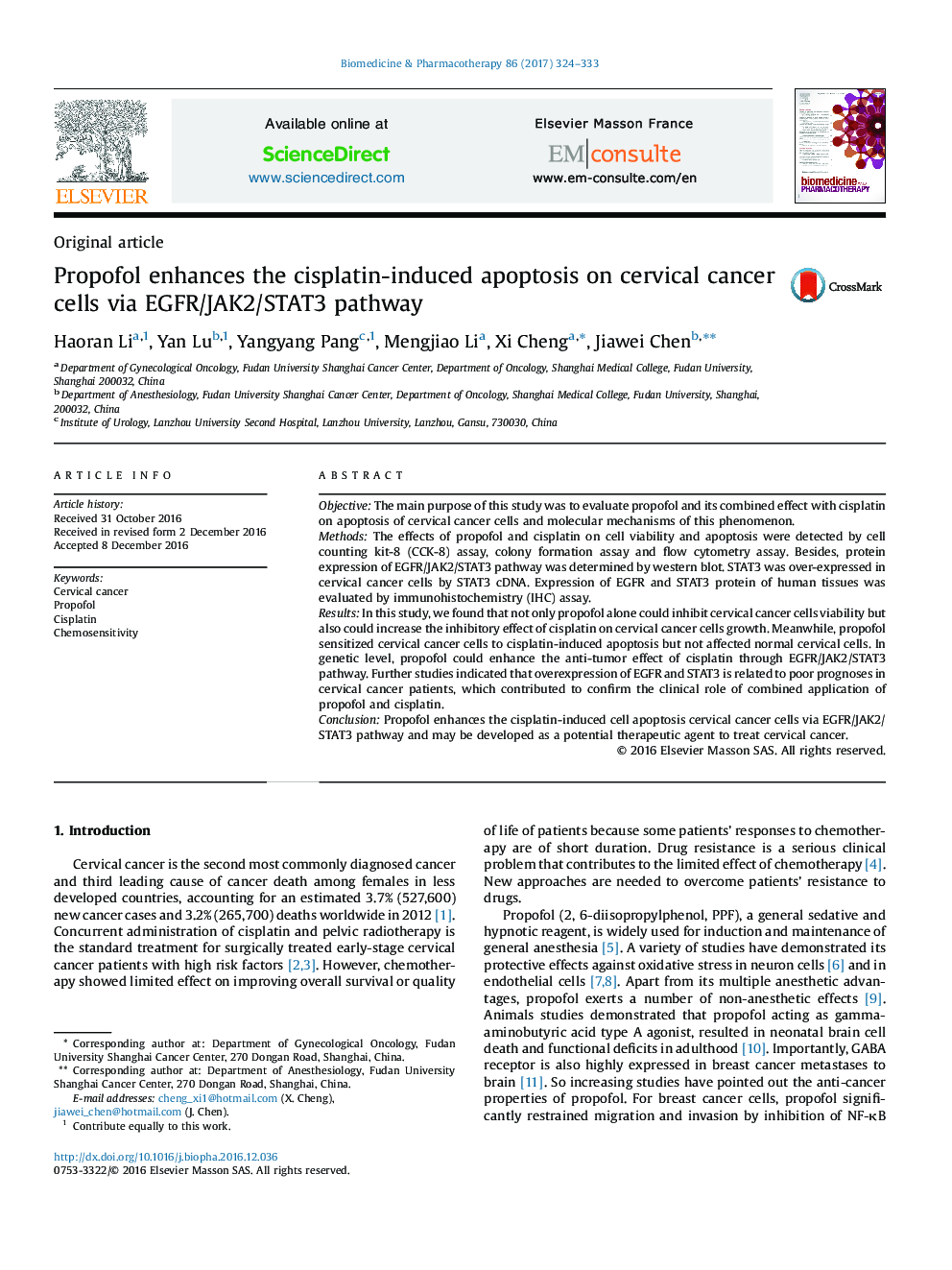| Article ID | Journal | Published Year | Pages | File Type |
|---|---|---|---|---|
| 5553548 | Biomedicine & Pharmacotherapy | 2017 | 10 Pages |
â¢Propofol inhibits cervical cancer cells viability.â¢Propofol increases the inhibitory effect of cisplatin to cervical cancer cells growth.â¢Propofol enhances the anti-tumor effect of cisplatin through EGFR/JAK2/STAT3 pathway.
ObjectiveThe main purpose of this study was to evaluate propofol and its combined effect with cisplatin on apoptosis of cervical cancer cells and molecular mechanisms of this phenomenon.MethodsThe effects of propofol and cisplatin on cell viability and apoptosis were detected by cell counting kit-8 (CCK-8) assay, colony formation assay and flow cytometry assay. Besides, protein expression of EGFR/JAK2/STAT3 pathway was determined by western blot. STAT3 was over-expressed in cervical cancer cells by STAT3 cDNA. Expression of EGFR and STAT3 protein of human tissues was evaluated by immunohistochemistry (IHC) assay.ResultsIn this study, we found that not only propofol alone could inhibit cervical cancer cells viability but also could increase the inhibitory effect of cisplatin on cervical cancer cells growth. Meanwhile, propofol sensitized cervical cancer cells to cisplatin-induced apoptosis but not affected normal cervical cells. In genetic level, propofol could enhance the anti-tumor effect of cisplatin through EGFR/JAK2/STAT3 pathway. Further studies indicated that overexpression of EGFR and STAT3 is related to poor prognoses in cervical cancer patients, which contributed to confirm the clinical role of combined application of propofol and cisplatin.ConclusionPropofol enhances the cisplatin-induced cell apoptosis cervical cancer cells via EGFR/JAK2/STAT3 pathway and may be developed as a potential therapeutic agent to treat cervical cancer.
